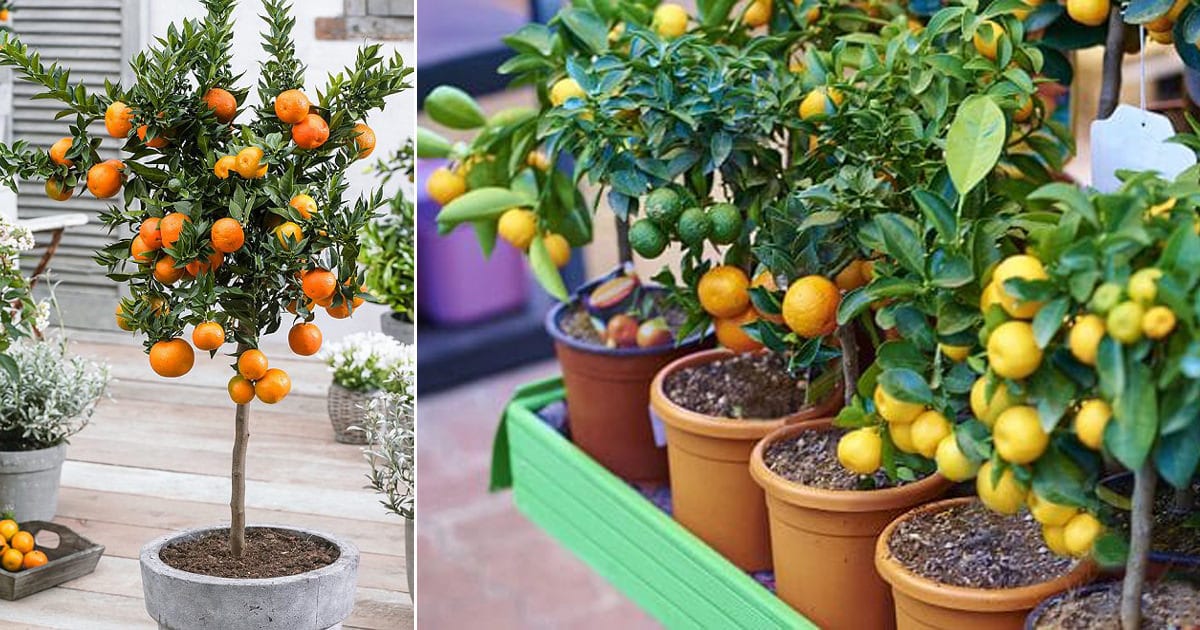
11 Best Fruit Trees to Grow in Containers
Pot the dwarf orange tree. Place an inch or two of gravel at the bottom of the container before adding soil; the container should have drainage holes. Partially fill the container with a potting mix available at your local garden store. Place the tree in the pot and fill it the rest of the way with soil, stopping about 1 to 4 inches from the rim.
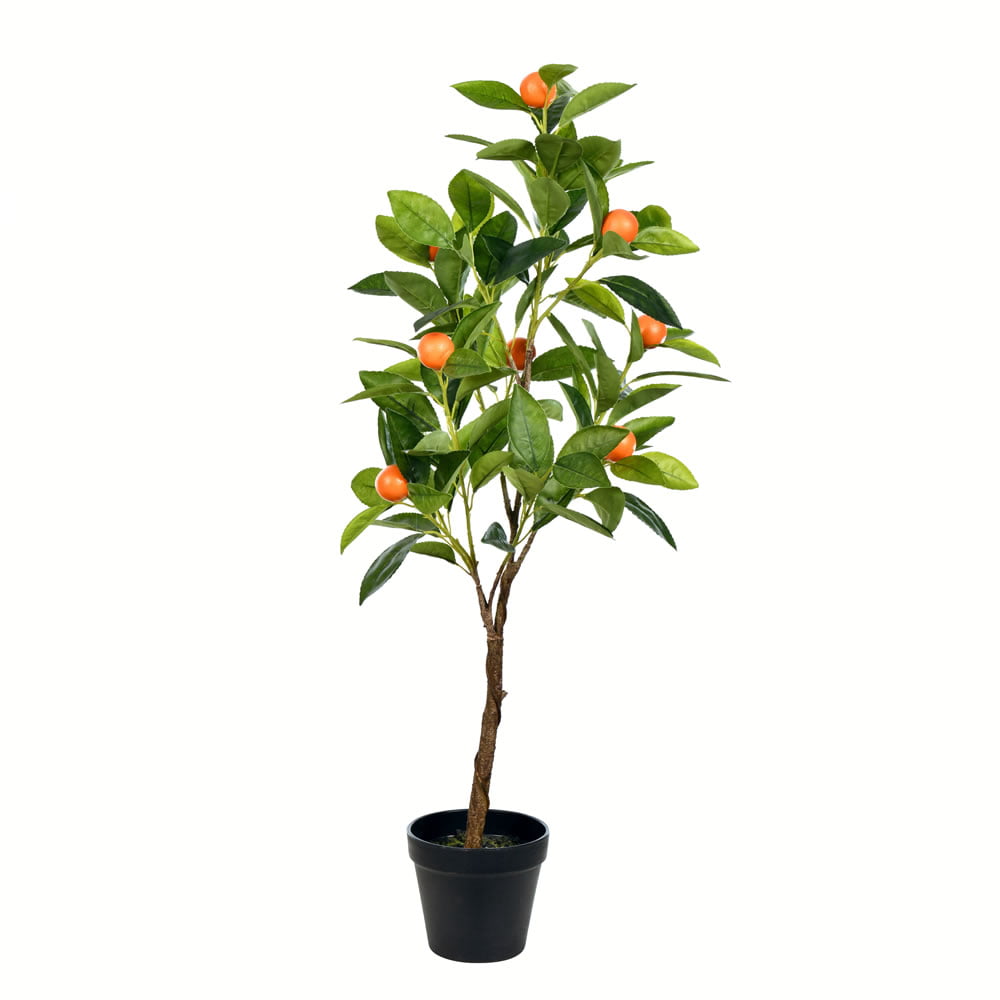
Vickerman 588611 29" Artificial Potted Orange Tree (TA190529) Fruit Styled Home Office Tree
The dwarf Calamondin orange tree is another citrus variety that does well as a potted plant. Even though the plant is hardy only to USDA zones 9 and 10, northern gardeners can overwinter potted plants indoors. The Calamondin orange is self-pollinating and grows six to ten feet tall.

How to Grow an Orange Tree in a Container! Potted trees, Potted fruit trees, Citrus trees
Water Properly (Tip #6) Like most citrus trees if you want the best results you need to water it properly. As discussed above, you will want to water your orange tree at least once a week if it is indoors and 2 to 3 times a week if it outside. In addition, you want to water your tree in the morning or late evening.

How to Grow an Orange Tree in Container Orange Tree in Pot
When growing orange trees indoors, the ideal temperature during the day is 68°F (20°C). Try to keep the temperature consistent - orange trees don't like sudden changes in room temperature. This means keeping your plant away from heat vents and drafty windows. At night, lower the temperature by 5-10 degrees fahrenheit.

Gardens Alive! 3in Pot Calamondin Dwarf Orange Tree (Potted) at
I have a potted key lime plant that produced over 100 fruits this year. Since then, the plant has deteriorated - many yellow leaves and daily leaf drop. I have re-potted it from a 12-inch plastic pot to a 14-inch tera cota pot and added new Miracle Grow soil I cleaned the root ball's compacted soil prior to placing it the new pot.

How to Grow and Care for Potted Orange Trees Minneopa Orchards
Orange trees tend to be too large, and anyway, are easily and cheaply bought in stores. It makes sense to grow something unusual and hard to normally buy, rather than something common.. The heat from the bulb will be trapped under the blanket and protect your tree from the cold. Caring for your potted citrus. Use a potting soil designed for.

How to Grow and Care for Potted Orange Trees Minneopa Orchards
Temperature: The dwarf orange tree can be kept outdoors all year in warmer climates (Hardiness Zones 8 to 10). In colder climates, plus during cold snaps and if there is a danger of frost, potted dwarf orange trees should be brought indoors or insulated with a blanket, burlap or large sheet of plastic. They do best in warm temperatures, such as.

Potted orange tree for our walled paved garden Orange tree, Tree, Plants
Transplant it to 12-15 inches pot and keep it under full sun. 2. From Seeds. For propagating an orange tree from the seeds, extract the seeds out of the fruit and soak them for 24 hours in water. Sow the seeds half an inch deep in a 4-6 inches pot filled with potting mix. Water it thoroughly after sowing.
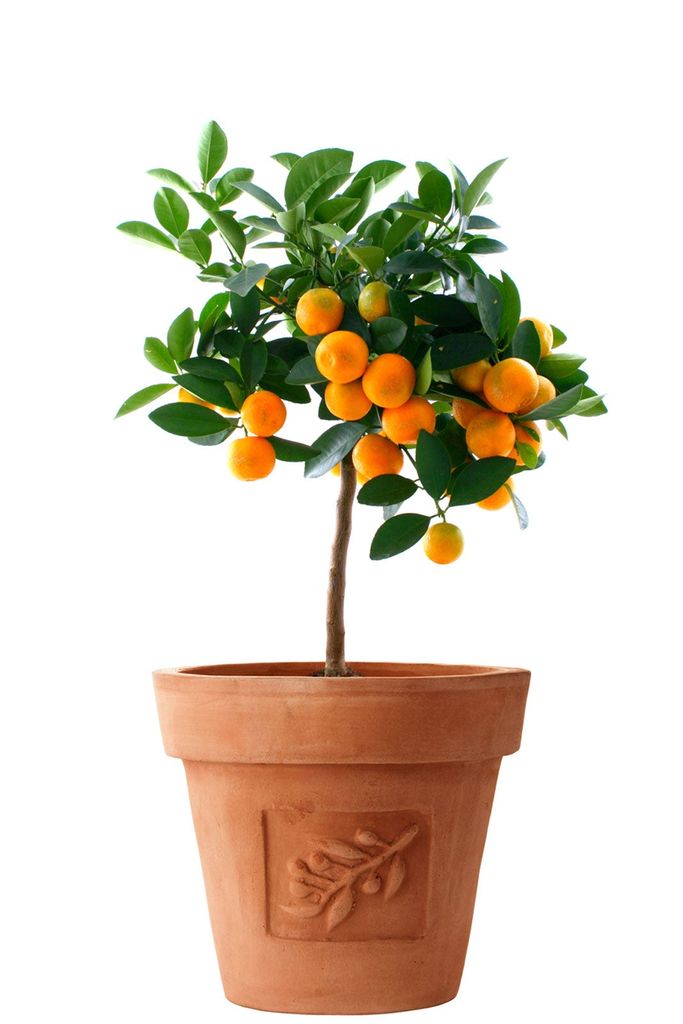
Orange Tree Container Gardening Best Orange Trees For Pots
You should never leave your outdoor potted orange tree in temperatures less than 50 degrees Fahrenheit. The optimal growing temperature for oranges is 65 to 75 degrees, but they'll do ok within a range of 50 to 100. Fertilizing. Choosing a healthy, nutritious fertilizer for your potted orange tree is just as important as choosing the potting.

Orange Tree Container Care Can You Grow Oranges In A Pot (With images) Fruit trees in
Potted trees can be watered using drip irrigation or manually with a hose. If watering manually, avoid wetting the trunk. Soil.. How big does a navel orange tree get? A: Tree size depends on the variety and rootstock combination. A dwarf tree will grow between 6-8 feet tall, a semi-dwarf tree will grow between 10-15 feet tall, and a standard.

How to Grow Orange, Tips for Growing, Planting and Harvesting Orange Everything About Garden
Soil. Orange trees thrive in loamy, rich, well-draining soil. It is important that excess water drains away, as orange trees cannot tolerate heavy, wet soil. When planting these trees, you can mix in potting soil for additional nutrients. Slightly acidic to neutral soil pH levels from 6.0 to 7.0 work best.
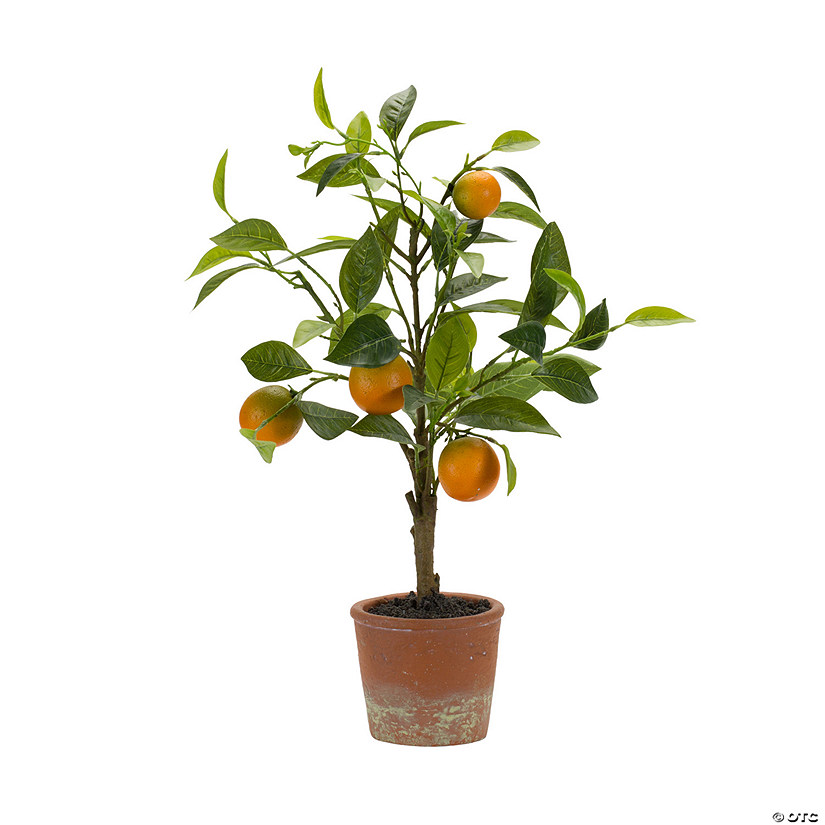
Melrose International Potted Orange Tree 21.5In Oriental Trading
Make your second cut about 3 inches (8 cm.) further out from the undercut. Cut all the way through the branch this time until the limb falls away. Lastly, cut the resulting stub back to the branch collar. If the cut is smooth, the tree will heal itself and no pruning paint or sealant is needed.

How to Grow and Care for Potted Orange Trees Minneopa Orchards
Place the tree in the center and fill the container with soil, firming it up around the base of the tree. Be careful that the tree is planted at the same height as in its original container. For the initial watering, soak the tree until water is coming out of the container's drain holes.

Orange tree in pot free photo on Barnimages
The orange tree has been enchanting our gardens for centuries. It's easy to grow. Key Orange tree facts. Name - Citrus sinensis Family - Rutaceae (Rue family) Type - fruit tree. Height - about 16 feet (5 meters). For potted growing, dwarf varieties are better. For instance, the "dwarf Valencia" is both productive and suited for.

Tips on How to Grow Orange in Container in 2020 Dwarf fruit trees, Growing fruit trees, Orange
The best orange trees for container gardening are the dwarf cultivars: Calamondin. Trovita. Budda's Hand. Satsumas are a small tree that can be dwarfed even more when potted. All these small trees must be protected when temperatures drop to 25 degrees F. (-4 C.) or lower.
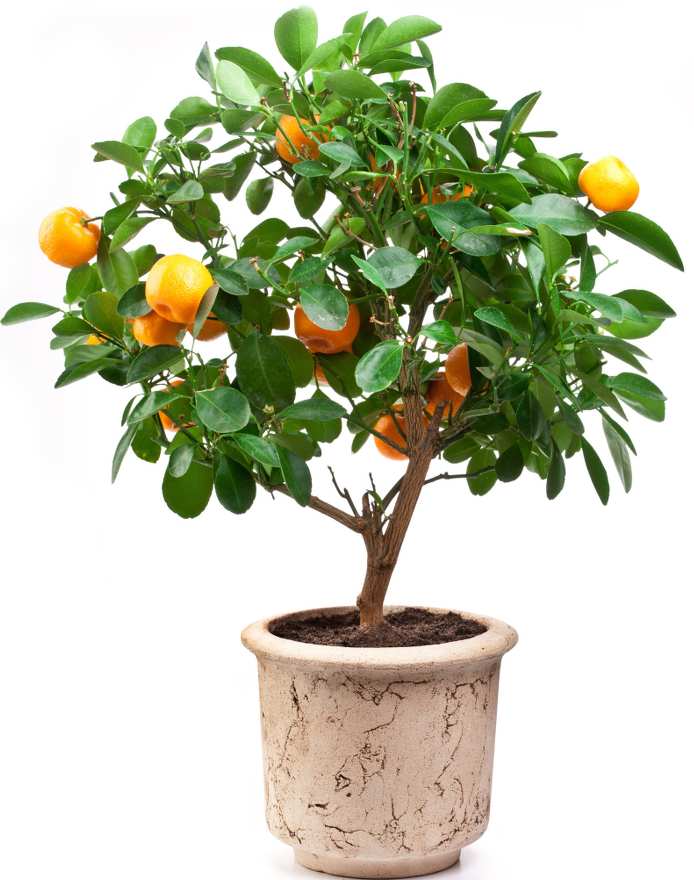
Potted orange tree care
The citrus tree grows best in USDA Zones 8-10. 10. Yuzu. The Yuzu is also called the Japanese Citron and is most loved for its tartness and fragrance that is also capable of retaining the flavor while being cooked. It can grow up to 4-6 feet in pots. The fruit is found in dark yellow color and has a lumpy texture.